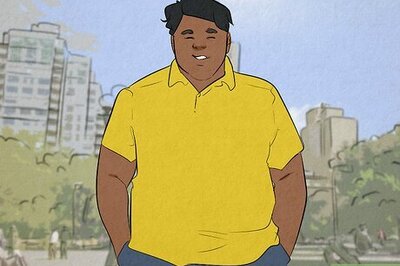
views
As COVID-19 infections surge across the country with nearly half of the fresh cases now being in rural areas, accelerated vaccination is the only solution to contain the raging pandemic, according to a report by SBI Research. So far, with a record 4,14,188 new infections reported in a day, total cases climbed to 2.15 crore while death toll crossed 2.34 lakh with 3,915 new fatalities in the past 24 hours.
The second wave of the pandemic has led the country begging for global aid in terms of money, medical oxygen and life-saving drugs as it has been contributing almost 44 per cent of the global caseload for the past many days. The report noted that the share of the top 15 districts in total new cases has significantly plunged to 26.3 per cent in May from 55 per cent in March, indicating that the spread of infections is now dispersed across the country.
“What is more worrying is the increase in rural penetration as the share of rural districts in new cases has increased to 48.5 per cent in May from 36.8 per cent in March,” Soumya Kanti Ghosh, group chief economic adviser at SBI, said in a note on Friday. “Vaccination can be the only driver as of now to contain the pandemic because recovery will actually depend on the public psyche to come out and this will not happen till the larger population is vaccinated. We thus again reemphasize the power of vaccination as a primary tool to reduce the severity of infections,” he said.
He went to the extent of saying that vaccination must be carried out on a mission mode, even if it means suspending economic activity for a while after the second wave subsides so that all get vaccinated. When looked district-wise, there is a clear shift visible. In March, Maharashtra had maximum 11 of 15 worst-affected rural districts. Now, the state has six. Other states that round up the 15 worst -affected districts are Andhra (5), Kerala (2), Karnataka (one), Rajasthan (one).
The only state that has shown improvement is Chhattisgarh which had three rural districts in top 15 during March and has no district now in the top 15 worst-affected rural districts. However, Ghosh quickly pointed out there is nothing salutary on the vaccination front so far, as we have given only 160.5 million doses with around 131 million taken the first dose and 31.5 million the two doses.
The percentage of people who have taken two doses to total vaccination doses is a low 19.5 per cent. However, the daily vaccination is going down now with an average of 17 lakh compared to an average of 28 lakh in April. ”Given this trend, we believe we can only be able to vaccinate 15 per cent of the population by October which is required for herd immunity but only if we are able to vaccinate around 55 lakh daily in September and October,” Ghosh said.
On the economic impact of the second wave, given that as many as 20 states are in various levels of lockdowns/restrictions he said, the economic disruption is now clearly visible. The number of rating downgrades is 3.7 times higher than upgrades in April. Also, SBI’s business activity index which has been declining steeply since April, has dipped to a new low of 71.7, the level attained in mid-Aug 2020 with all indicators deep in the red, except for weekly food arrival and power intake What is more worrying is the decline in labour participation as it indicates that the disruption has percolated to the labour market, too.
Given these conditions, real GDP growth of 10.4 per cent looks a bit ambitious, he said without proffering a new forecast.
Read all the Latest News, Breaking News and Coronavirus News here. Follow us on Facebook, Twitter and Telegram.




















Comments
0 comment